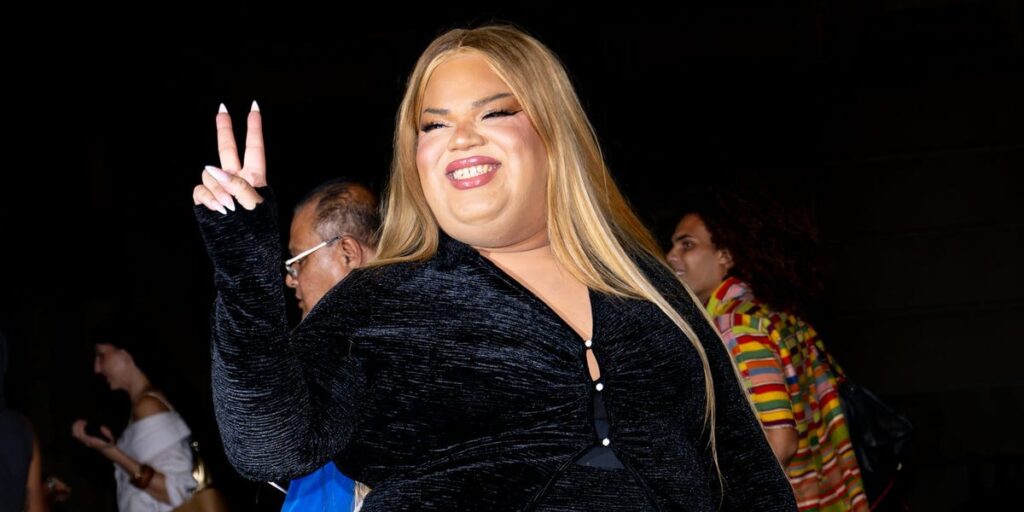- TikTok published its global “What’s Next” trends report for marketing creatives on Wednesday.
- It advised marketers to try out AI tech and hire a wider set of creators to reach niche communities.
- TikTok also dove into how marketers should change how they talk about life stages with consumers.
TikTok shared on Wednesday the culture and technology trends it thinks will shape the creative side of marketing in the coming year.
The company is encouraging marketers to lean into artificial intelligence as a creative tool, hire a wider set of influencers to reach niche communities, and adjust how they speak to a new crop of consumers who view life stages differently than their predecessors. The trends are laid out in TikTok’s 2025 “What’s Next” report.
Business Insider spoke to Cassie Taylor, TikTok’s global creative solutions and trends lead, and several marketing partners who had early access to the report about where TikTok marketing is heading next.
TikTok’s deep dive into global trends did not address the elephant in the room: its app could be pulled from US app stores as early as January 19, as mandated by a divest-or-ban law. If that does happen, TikTok would still operate in other markets. Brands would likely shift their US attention to other short-video products, such as Instagram reels or YouTube shorts. Taylor declined to comment on a potential ban.
Here are BI’s key takeaways from the 36-page report:
1. AI is a marketer’s friend, not a foe (hopefully)
Last year, TikTok announced a bunch of new generative-AI tools for marketers inside a creative suite called Symphony. The product allows creatives to generate ad scripts and trend summaries and translate and dub videos into new languages, among other offerings. One of Symphony’s more striking features helps brands use AI-generated avatars built from the likenesses of influencers or paid actors. That tool remains in limited use, Taylor said.
Some influencers and marketers have expressed nervousness about the potential for generative AI to take away jobs. TikTok acknowledged that uncertainty in its report. Still, the company wrote that marketers can gain a “creative edge” if they embrace AI.
“Even a few years ago when we started to see different apps come out with AI, it was a little bit of, ‘Do we like this? Do we not like this?’ Should we be worried about it?'” Taylor said. “It’s now been around just enough time from a trend perspective for people to really see its value.”
Bridget Jewell, an executive creative director at Dentsu Creative who sits on a creative partner council for TikTok, said the agency uses TikTok’s Symphony suite to come up with video ideas and identify trending sounds.
“It’s the tool that allows us to think about things differently,” Jewell said.
2. Work with influencers to connect with niche communities
Marketers go back and forth on whether to hire celebrities and mega influencers for reach or to work with creators who have more targeted audiences. TikTok is betting the latter will take off in 2025.
“As communities seek trusted voices, more people are becoming creators, from quiet reviewers to quirky characters,” the company wrote in its report. “It’s not about the loudest voice, but increasing the number of creators, sometimes even by 50% — to drive impact at scale.”
Working with creators who know how to speak to a specific community can help a brand build trust, Taylor said.
“I’m not saying there isn’t a time and place for a mass message,” Taylor said. “What I’m saying is people will build a relationship with you on TikTok if you’re talking to them like the community.”
Jamie Gersch, chief marketing officer of the fashion brand Rothy’s, told BI the company looks to work on campaigns with influencers who are already engaging with its products on social media.
“The in-house team is living and breathing on the platform and finding people that are naturally talking about us and love us,” Gersch said.
3. Brands should treat life stages differently for modern consumers
Marketers should rethink the way they talk about traditional life milestones like buying a home when they speak to TikTok users.
These milestones can induce “FOMO and anxiety about falling behind,” the company wrote. It pointed to users on the app who have shared their struggles with student debt and homeownership.
Instead of posting videos that value classic life stages, brands could lean into other goals TikTok users have shown they care about, like improving mental health or going on a hike.
“People are getting married later. People are moving abroad as a milestone. People are having different career goals,” Taylor said.
Read the full article here


